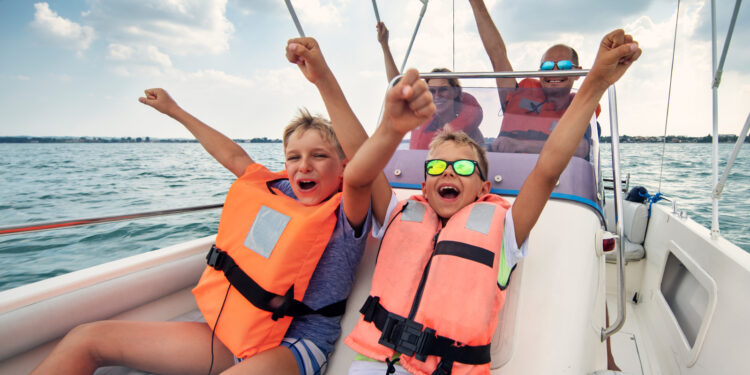Residents and visitors flock to lakes, rivers, and oceans every summer to enjoy boating with friends and family. But it’s important to remember that safety comes first.
The most common cause of boating mishaps and fatalities is drowning. Ensure a sober operator is permanently assigned, and everyone wearing a life jacket does so.
Wear a Life Jacket
The most important thing you can do to stay safe while boating is to wear a life jacket. This is especially important for children and anyone who does not know how to swim. The most common cause of boating accidents is drowning, and 83% of the victims didn’t have life jackets on when they passed away.
Ensure that every passenger always has a correctly fitting life jacket. Many life jackets are available today, so finding one that is comfortable and easy to wear is essential.
Keep a First Aid Kit on Board
While boating is statistically safer than driving a car, no one wants to take the chance of an accident occurring while on the water. Having a first aid kit on board is a necessary safety precaution, especially for those with medical conditions. For instance, Kenosha marina, a renowned full-service marina located on the shores of Lake Michigan, strongly recommends that all boaters have a well-stocked first aid kit on board in case of emergencies.
The contents of a first aid kit should be tailored to the level of self-sufficiency required by your boating trips. In addition to a first aid kit, a whistle or horn is also helpful for signaling for help.
VHF radios are an excellent addition to your boating gear and are essential for staying in contact with other boats. A visual distress signal like flares is also a good idea, and a personal locator beacon is a wise investment for those venturing out further from shore.
Keep a Sober Skipper on Board
Operating a boat while under the influence of alcohol or drugs is never safe or permitted. It is one of the leading causes of boating accidents.
Designate a sober skipper before your trip, and make sure everyone knows their role on board. Like designated drivers on the road, this will help keep you and your passengers safe.
Besides ensuring the sober skipper is familiar with the boat, let all passengers know where to sit and how to wear life jackets properly. They should also be aware of the location of emergency equipment, such as flares and fire extinguishers, in case an emergency arises.
Have a Plan in Case of Emergency
Drowning is one of the most common boating accidents. Being thrown overboard or losing their grip on the boat can lead to severe injuries and even death.
Carbon monoxide poisoning is another threat to the water. Internal combustion engines produce this odorless, colorless gas, and can accumulate in enclosed spaces.
Make a plan to prevent an accident by communicating your trip details with someone ashore before you depart. Create a float plan that includes your boat name, destination, and estimated return time. In an emergency, a float plan can help rescuers find your vessel quickly.
Check the Weather Before You Head Out
As warmer weather returns, many boaters head onto lakes, rivers, and oceans to cruise, fish, water ski, and more. However, a bad storm can quickly change things instantly and leave people stranded or in danger.
To avoid this, you must check the weather before you head out. Pay attention to wind shifts, choppy waters, and sudden changes in barometric readings, as these can be warning signs of incoming bad weather. Additionally, wear layers of clothing to adjust to the weather as it changes.
Keep Your Boat in Good Condition
All boats must have specific safety components, including fire extinguishers, flares, and navigation lights. These must be inspected and maintained regularly to ensure they will function properly when needed. Also, assign someone on board to watch for potential hazards, such as hazardous tree limbs and sandbars.
It is important to remember that all internal combustion engines produce carbon monoxide, an odorless, colorless gas that can sicken or even kill people in minutes. Ensure the proper cabin ventilation is maintained and check for blocked exhaust outlets.
Have a Plan for the Unexpected
As we enter the summer boating season, millions of Americans will hit the water. While the thrill of cruising the waterways and taking in the sights is undeniable, it’s essential to remember boating safety basics to keep everyone safe.
Drowning is one of the most common causes of boating accidents. To help prevent this, always wear a life jacket.
In addition, make sure to check the weather before heading out. If a storm moves in, it could quickly turn your boating trip into a disaster. Weather advisories and warnings are found on VHF marine radios, commercial radio stations, television, and newspapers. Read more exciting articles on Tech new master



















